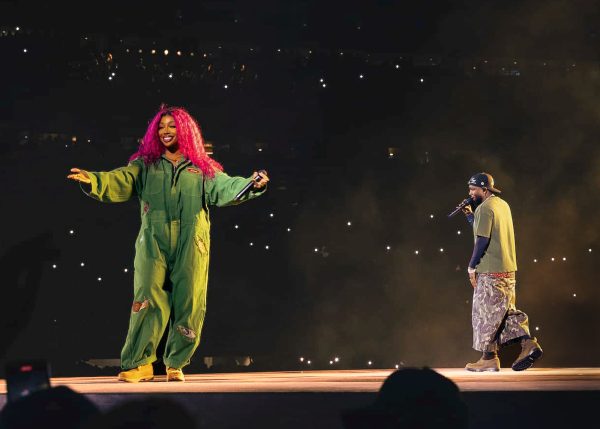Spotify Faces COVID-19 Controversy
When Canadian-American singer Neil Young felt that “lies [were] being sold for money,” he had to act. On January 24, he wrote to Spotify demanding them to remove all of his music content. Although this may seem extreme, Young had strong reasoning for his decision.
It came in response to Dr. Robert Malone’s interview on The Joe Rogan Experience, currently the No. 1 podcast on Spotify, which contains numerous pieces of misinformation relating to COVID-19. For example, Malone claims that mRNA vaccines are unsafe and can result in serious side effects, particularly for children. He also goes on to question President Joe Biden’s vaccination status, asking, “Was [what Biden received] really a vaccine?” Malone also spouted retracted statistics about the vaccine’s likelihood of causing myocarditis and claimed that vaccine mandates violate the Nuremberg Code, which is untrue.
With an average of 11 million listeners per podcast episode, Joe Rogan, along with his guests, has the potential to reach a wide audience. With America’s population being 65.1 percent vaccinated, this spread of misinformation should be taken seriously, as it can discourage vaccine use. Young’s letter set the ultimatum that Spotify “[could] have Rogan or Young. Not both.” He believes that “Spotify has a responsibility to mitigate the spread of misinformation on its platform,” and that this responsibility could only be filled if Joe Rogan was deplatformed.
Unsurprisingly, Spotify chose Rogan over Young, and the singer-songwriter’s discography was almost entirely removed on January 26. Compared to Young, Rogan is more important to Spotify’s business. In efforts to secure themselves as the market leader for podcasts, it is reported that in May 2020, Spotify made a 200 million dollar deal with Rogan, establishing him as a priority.
In response to further criticism of Rogan, Spotify has emphasized that they value freedom of speech. According to Spotify’s chief executive and co-founder Daniel Ek, “[They] want creators to create, […] [and they’re] not looking to play a role in what they should say.” The company, however, has moved to be more transparent with their policies and to add content warnings to podcasts that discuss COVID-19. The exodus of other artists from the platform may have prompted this response. Along with Neil Young, Joni Mitchell, Ava DuVernay and India Arie have also separated themselves from the company.
Even students at Boston Latin School are divided as to whether it was Spotify’s responsibility to deplatform Rogan or not. Creighton Banitt (III) says, “They should have removed his platform, [since] he has pretty consistently been spreading misinformation and hateful messaging. […] Spotify has an obligation to stop that.” In comparison, Oliver Lee (II) “[doesn’t] think [Rogan] is in the wrong for sharing what he thinks to his audience.” Lee adds that since Spotify does not endorse everything Rogan says, “Rogan shouldn’t have had his platform taken from him.” While there are pros and cons to Neil Young’s decision and Spotify’s response, debates such as this will certainly continue in a future heavily impacted by the spread of misinformation.






